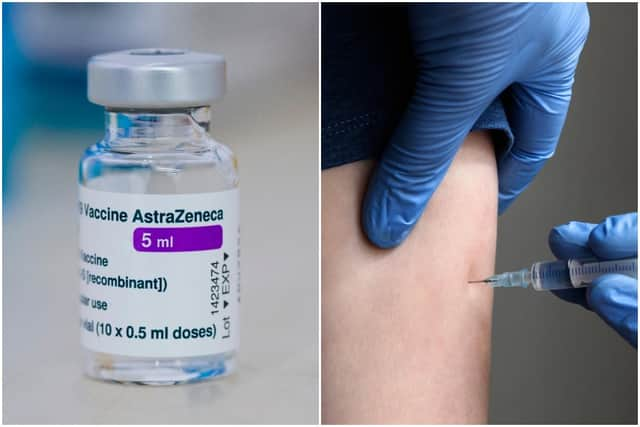Astrazeneca vaccine: family of man who died from blood clot after having jab urge public to get vaccine
and live on Freeview channel 276
The family of a man who died in hospital on Easter Sunday from a blood clot on the brain after having the AstraZeneca vaccine has urged people to keep taking the jab to “save lives”.
Neil Astles, 59, is the first person named in the UK who is suspected to have died from side-effects linked to the vaccine, the Telegraph reports.
Advertisement
Hide AdAdvertisement
Hide AdMr Astkes, a solicitor at Warrington Borough Council, became ill on March 17 and later died after suffering from a loss of vision and headaches.


‘He was extraordinarily unlucky’
His sister, Dr Alison Astles, told the newspaper that he was “extraordinarily unlucky" and urged people to take the Astrazeneca jab if it is offered to them.
Dr Astles said: "If we all have the vaccine, a few of us might have a blood clot but the evidence is that fewer people will die.
Advertisement
Hide AdAdvertisement
Hide Ad"We trust the process, we trust the regulator, and despite what has happened to our family, we don't want people to be scared off. That's the message we want to get across."
‘The vaccines are safe, they’ve saved lives’
The family’s plea comes as the Prime Minister Boris Johnson has told the public that the Astrazeneca jab is “safe, effective and has already saved thousands of lives.”
Speaking to reporters in Cornwall, Johnson said: “The vaccines are safe, they’ve saved many thousands of lives and people should come forward to get their jabs and we’ll make sure that they get the right jabs.”
What the regulators have said
UK regulators said there was a possible link between the jab and "extremely rare" blood clots.
Advertisement
Hide AdAdvertisement
Hide AdThe Medicines and Healthcare products Regulatory Agency (MHRA) said the benefits still outweigh the risks overall but while it has not concluded that the vaccine causes rare brain clots, it said the link is getting firmer.
Regulators have recommended that people aged 18 to 29 should be offered the Pfizer, Moderna or other vaccines that come on stream as the programme continues to rollout across the UK.